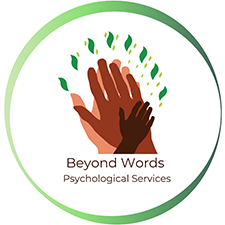Why Badmouthing the Other Parent Hurts Your Child
When you get a divorce, it’s easy to think about all of the mistakes your partner made or the ways they may have changed for the worse. And to some extent, your child probably recognizes these problematic areas, as well. However, seeing or knowing that a parent made a poor choice is different than being constantly reminded of it by your other parent. Have you ever wondered about the psychological impact of badmouthing the “other parent” to your child?
First and foremost, it’s hurtful to your child. No matter what parents do, it’s natural for most children to continue to love their parents unconditionally and seek their acceptance and approval. When anyone puts down someone or something we love, it hurts – and it hurts all the more if the person doing the putting down is your other parent.
Not only does it hurt your child’s feelings, but it puts them in the awful position of feeling like they have to choose sides. Children can be extremely loyal to their parents, and if they feel that they are being influenced to love one parent more than the other, or choose one parent over another to spend time with or live with, they are going to experience a tremendous amount of guilt and shame. This is often turned inward, because kids do not always have the tools to express themselves verbally. It can lead to poor self-esteem, self-blaming and self-hatred, which can turn into substance abuse, legal problems, eating disorders and self-injurious behaviors. Just as you would not want to have to choose sides between two of your children, you should not expect your child to choose between their parents.
Another aspect of badmouthing the other parent can lead to exceptional psychological distress. Consider that your child views themself as half of you and half of the other parent in many ways. Most children know that they have some parts of mommy and some parts of daddy in them, whether that’s daddy’s eyes and temper or mommy’s nose and mood swings. When you put down your ex, you are putting down your child. You are teaching them that there are parts of their identity (appearance or personality) that you despise, and many kids will internalize this has having something wrong with themselves. Once again, this can lead to significant psychological problems in children, teens and the adult years, as noted above.
The best thing you can do for your child is to try to get along with your ex in a civil way. Try to remember why you fell in love with your partner in the first place, and share the positive aspects of the other parent with your child. In any case, if you can’t say anything nice, don’t say anything at all.
Link of the week: 9-DO’S-AND-DON’TS-FOR-DIVORCING-PARENTS
Next Month’s Topic: EFFECTIVE STRATEGIES FOR DISCIPLINE
